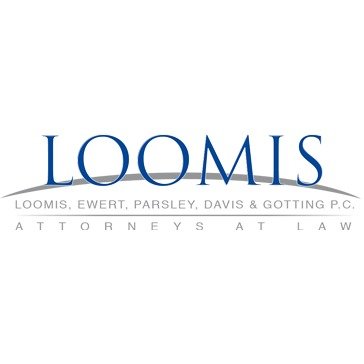Best Nonprofit & Charitable Organizations Lawyers in United States
Share your needs with us, get contacted by law firms.
Free. Takes 2 min.
Or refine your search by selecting a city:
List of the best lawyers in United States
About Nonprofit & Charitable Organizations Law in United States
Nonprofit and charitable organizations in the United States are entities established to pursue a variety of missions, such as educational, religious, scientific, and humanitarian activities. These organizations are tax-exempt under Section 501(c) of the Internal Revenue Code, provided they adhere to certain regulations. The law governing these entities is a combination of federal, state, and local regulations, aimed at ensuring their operations align with their stated missions and public interest.
Why You May Need a Lawyer
Legal advice may be required for several reasons in this field. Nonprofit organizations often face complex legal challenges, including formation and incorporation, ensuring compliance with federal and state tax-exemption requirements, governance issues, fundraising regulations, handling employment law matters, and managing potential conflicts of interest. A lawyer can help navigate these issues, protect the organization’s tax-exempt status, and provide guidance on board responsibilities and other legal obligations.
Local Laws Overview
Nonprofit organizations must comply with a range of local laws. Each state has its own rules for incorporating a nonprofit, maintaining its status, and regulating fundraising activities. Some key aspects include requirements for filing articles of incorporation, drafting bylaws, obtaining necessary licenses, adhering to solicitation laws and registering with state charity regulators. It is essential for these organizations to understand their state-specific obligations to maintain their legal standing and tax-exempt status.
Frequently Asked Questions
1. What is the first step in starting a nonprofit organization?
Begin by selecting a unique name, writing your mission statement, and outlining your organization’s goals. Then, file articles of incorporation with your state and apply for an Employer Identification Number (EIN).
2. How do I obtain 501(c)(3) tax-exempt status?
After incorporating your nonprofit, you must file Form 1023 or 1023-EZ with the IRS to apply for federal tax-exemption under 501(c)(3). Ensure your organization meets the requirements regarding structure and purpose.
3. What are some common legal compliance issues?
Common issues include failure to file IRS Form 990 annually, improper use of funds, non-compliance with state registration laws, and inadequate conflict of interest policies.
4. Can a nonprofit organization make a profit?
Yes, nonprofits can generate a profit. However, these profits must be used to further the organization’s mission and cannot be distributed to members or shareholders.
5. What is the difference between a 501(c)(3) and other 501(c) organizations?
501(c)(3) organizations are charitable, religious, or educational and can receive tax-deductible contributions. Other 501(c) categories, like 501(c)(4) and 501(c)(6), have different purposes and tax benefits.
6. Do nonprofits have to pay state sales taxes?
It varies by state. Some states offer sales tax exemptions for certain nonprofit activities, while others do not. Organizations must apply separately for state sales tax exemptions.
7. How are board members of a nonprofit organization selected?
Board members are typically selected based on the organization’s bylaws, which may include nominations, elections by current members, or appointments by existing board members.
8. What fundraising regulations must nonprofits comply with?
Fundraising regulations can include registering with state charity officials, adhering to local solicitation laws, and ensuring transparency with donors about fundraising practices.
9. Can a nonprofit engage in political activities?
501(c)(3) nonprofits can engage in limited political activities, such as voter education, but cannot directly endorse or oppose political candidates. Lobbying activities are permitted but limited.
10. What happens if a nonprofit loses its tax-exempt status?
Loss of tax-exempt status can result in having to pay federal income taxes, disallowance of donor tax deductions, and negative publicity. It usually occurs due to failure to comply with legal and reporting requirements.
Additional Resources
Several resources can assist with legal advice and questions about nonprofit organizations. These include the Internal Revenue Service (IRS) for tax-related queries, the National Council of Nonprofits for advocacy and best practices, and state-specific charity regulatory offices. Engaging with an experienced nonprofit lawyer or legal service organization can also provide tailored support.
Next Steps
If you require legal assistance in setting up or managing a nonprofit organization, consider consulting with a lawyer specializing in nonprofit law. They can provide expert advice and help ensure compliance with all applicable laws and regulations. Start by conducting research to identify lawyers or legal services with nonprofit expertise, seek recommendations, and schedule consultations to discuss your organization’s specific needs and challenges.
Lawzana helps you find the best lawyers and law firms in United States through a curated and pre-screened list of qualified legal professionals. Our platform offers rankings and detailed profiles of attorneys and law firms, allowing you to compare based on practice areas, including Nonprofit & Charitable Organizations, experience, and client feedback.
Each profile includes a description of the firm's areas of practice, client reviews, team members and partners, year of establishment, spoken languages, office locations, contact information, social media presence, and any published articles or resources. Most firms on our platform speak English and are experienced in both local and international legal matters.
Get a quote from top-rated law firms in United States — quickly, securely, and without unnecessary hassle.
Disclaimer:
The information provided on this page is for general informational purposes only and does not constitute legal advice. While we strive to ensure the accuracy and relevance of the content, legal information may change over time, and interpretations of the law can vary. You should always consult with a qualified legal professional for advice specific to your situation.
We disclaim all liability for actions taken or not taken based on the content of this page. If you believe any information is incorrect or outdated, please contact us, and we will review and update it where appropriate.
Browse nonprofit & charitable organizations law firms by state in United States
Refine your search by selecting a state.

















